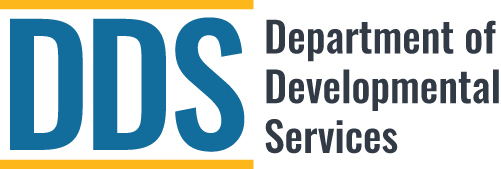After a year of hard work together, California now has community-driven recommendations for ways to strengthen developmental disability services.
Governor Gavin Newsom and the California Health and Human Services Agency (CalHHS) released the Master Plan for Developmental Services (Plan) on March 28, 2025. The Plan has recommendations from the community for how to improve support for people with intellectual and developmental disabilities (I/DD) and their families today and into the future.
“This would not have been possible without the collaboration of community members committed to making California a place where everyone is valued and can thrive. We are deeply grateful for their contributions. These recommendations will inform the future for our State that meets the needs and goals of each person with intellectual and developmental disabilities, their families, and the workforce that supports them.” -Kim Johnson, CalHHS Secretary.
About the Plan:
The Plan was built with help from thousands of people across the State. It reflects the diverse experiences and voices of the community, including people with disabilities, their families, service providers, advocates, and community partners. To gather input, the Plan’s Committee and its workgroups gathered frequently over a year-long process, and more than 45 separate listening sessions were held across California. These meetings captured input from a wide range of voices.
We are deeply grateful to everyone who shared their experiences and ideas. Your input helps shape the future of developmental services in California.
The Plan includes 167 recommendations reflecting what Californians with intellectual and developmental disabilities and their families want to see to make services better across education, health, jobs, housing, and transportation.
Key recommendations include:
- Better Access to Services: Streamlining systems to reduce wait times and enhance how people get the help they need.
- Equity and Inclusion: Addressing challenges for underserved communities, including language and location barriers.
- Support for Choice: Giving people consistent tools and information to make their own life decisions.
- Stronger Workforce: Improving training, pay, and support for direct support professionals (DSPs).
- More Transparency: Making data and service information easier to access and understand.
- Smarter Use of Data: Using data to track progress and ensure services are meeting people’s needs.
What’s Next? The Department already is using the Plan to inform current and future work. Many efforts are underway, including but not limited to:
- Replacing outdated case management and fiscal systems with the new Life Outcomes Improvement System (LOIS)
- Growing a more diverse workforce with rate reform, training and certification programs, and competitive wages
- Building stronger employment pathways by ending sub-minimum wages and expanding inclusive education and career opportunities
- Training law enforcement on how to safely interact with individuals with intellectual and developmental disabilities
- Improving data dashboards and public access to information
Stay Engaged: The Department will keep working with the community through events and focus groups to get input and connect recommendations to active or planned work. These conversations will center on topics like jobs, autism, service rates, and more. Updates and ways to get involved will be shared through our newsletter and the Events page on our website.
Read the Plan in your preferred language:
- English: Master Plan for Developmental Services: A Community-Driven Vision
- Spanish: Plan Principal para Servicios de Desarrollo: Una Visión Impulsada por la Comunidad
Translations to Korean, Chinese Simplified and Traditional, Tagalog, and Vietnamese will be posted on the Master Plan webpage as soon as they are available.




